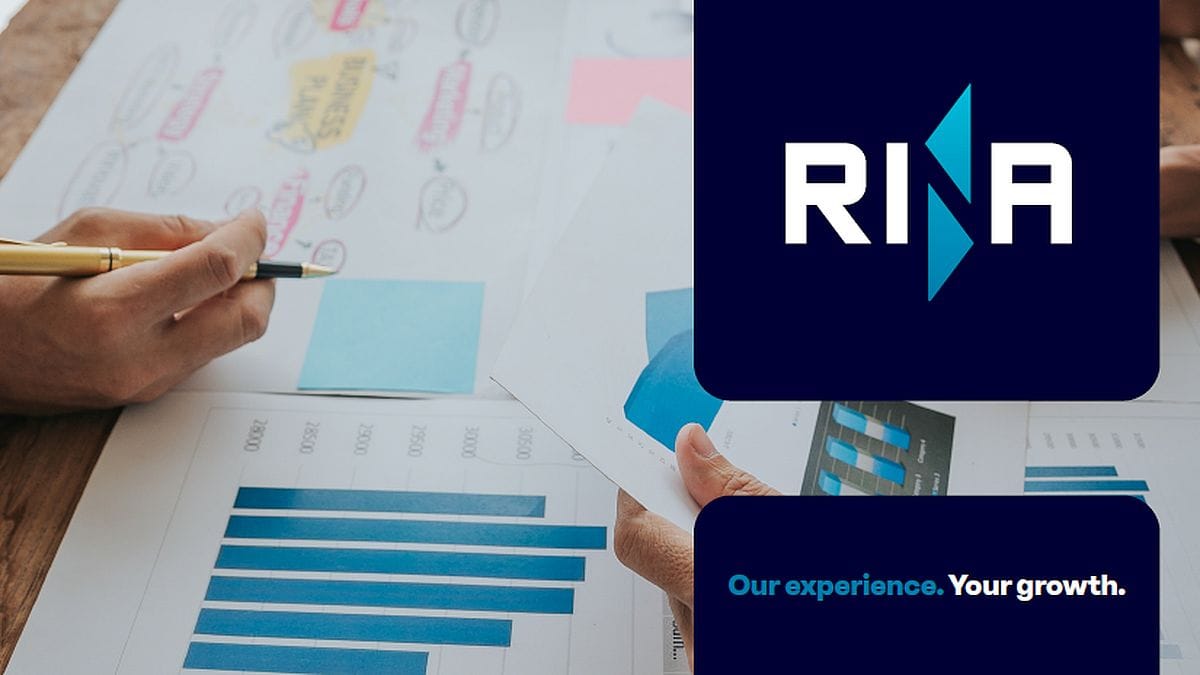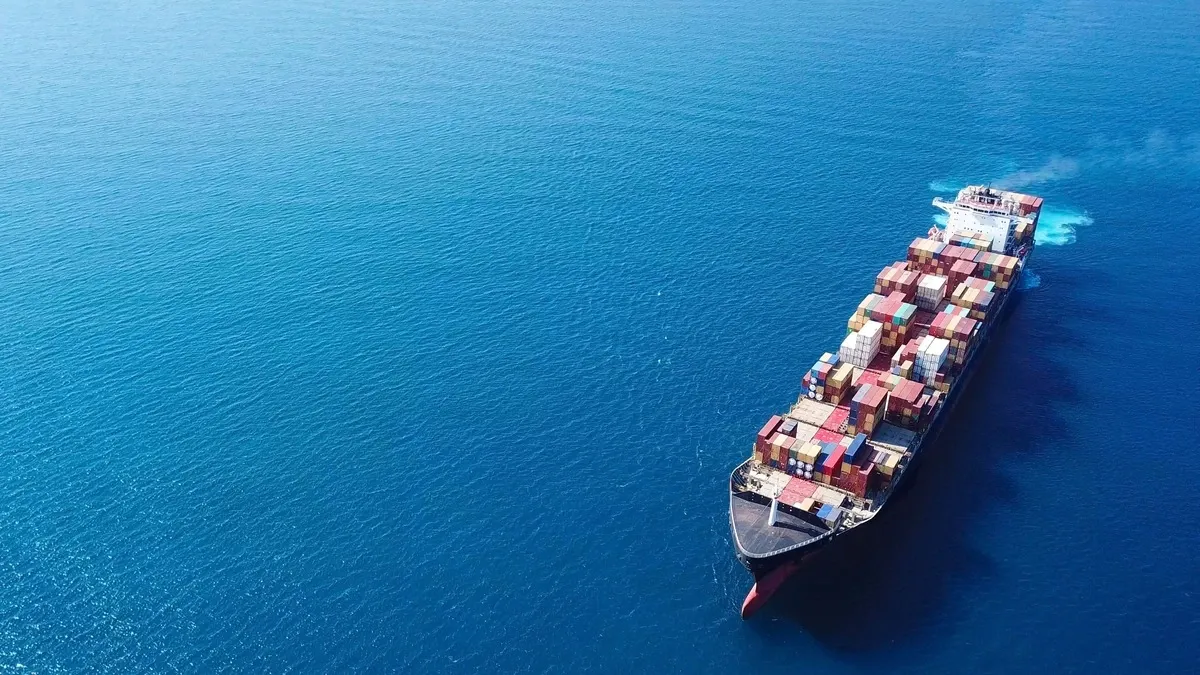RINA has published a report from the 82nd session of the IMO Marine Environment Protection Committee (MEPC 82) that was held from 30 September to 4 October 2024.
RINA is a founding member of IACS (International Association of Classification Societies) and operates on behalf of 122 flag authorities. In addition to the provision of classification and statutory certification, RINA delivers value-added services to the shipping industry and is rated among the top-performing classification societies.
 Marine Regulations NewsMatko Rak
Marine Regulations NewsMatko Rak
The main decisions taken are summarized below on the basis of the information obtained while following the debate:
MEASURES TO REDUCE GHG EMISSIONS FROM SHIPS
Review of the short-term GHG reduction measure (CII)
On the basis of the information and data gathered so far, the Committee agreed to conduct the review according to a two-phased approach (i.e. phase 1 (before 1 January 2026) and phase 2 (after 1 January 2026)) where the identified challenges/gaps are to be addressed.
Before 1 January 2026, it is expected to define the CII reduction (Z) factor for the years 2027-2030 – which is undefined yet – and improve the CII so to allow for robust individual ship-based assessment of operational energy efficiency performance. The following penalization in CII calculations are expected to be addressed from phase 1 but also in phase 2:
- idle time and port waiting time;
- short voyages;
- significant periods of time in port spent by cruise passenger ships,
while other identified penalizations will be addressed in phase 2 (e.g. those for selfunloading bulk carriers; geared bulk carriers; ships navigating in adverse weather; ships using bow thrusters; ships performing ballast voyages; ships equipped with inert gas generator; ships carrying refrigerated cargo below deck; steam driven LNG carriers; ro-ro cargo and ro-ro passenger ships).
Considerations will also be given in phases 1 and 2 to the accessibility of DCS and CII ratings data; while in phase 2 it is expected to consider also the accuracy of reference line for smaller LNG carriers, the possibility to consider fuel emissions on their full life cycle and pooling.
A Correspondence group has been established to work before MEPC 83 on the possible options to address the identified challenges/gaps and on development the draft amendments to existing instruments and/or development new ones. The work of the Correspondence group will be considered by the intersessional working group on Air Pollution and Energy Efficiency (before MEPC 83) and at MEPC 83 (April 2025).
Progress on mid-term GHG reduction measures
Based on the discussions during the Intersessional Working Group on GHG (ISWG-GHG17) and MEPC 82, progress on mid-term measures have been made developing a very first draft of amendments to MARPOL Annex VI (new Chapter 5 “Regulations on the IMO net-zero framework”) which will be further deeply discussed in view of approval at MEPC 83 (April 2025). The new Chapter will include technical and economic measures, and – for the time being- contains the following agreed key points:
- both new measures (i.e. technical and economic) will apply to ships of 5.000GT and above;
- the technical measure will require each ship to calculate its GHG fuel intensity (attained annual GFI) - the amount of GHG emissions per unit of energy used on board in a calendar year – which shall result lower or equal to the required/target annual GFI, which will be reduced over the years;
- the economic measure will aim at incentivizing the net-zero framework and a fund/facility will be established.
However, many aspects are still to be discussed/ such as the implementation date (i.e. 2027 or 2028); the elements for the calculation of attained GFI (e.g. how to consider WTW emissions, need for correction factors for ships serving eligible ports of developing countries expected to be negatively impacted by the measures); the definition of required/target GFI; the possibility of flexible mechanisms to facilitate compliance with the technical measure (e.g. transfer of compliance, banking), the survey requirements (e.g. timeframe for demonstration of compliance and issuance of certificates; the necessary non-mandatory guidelines to implement the new requirements.
Moreover, in relation to the economic measure, agreement is still to be reached on many issues, such as how the revenues are generated (e.g. a mandatory predictable financial contribution, levy, feebate or surcharge paid by ships, revenue raised as a by-product from the acquisition of GFI remedial units, other voluntary sources), legal and technical aspects of the establishment/management of the fund/facility, the methodology to determine an appropriate GHG price/contribution rate and whether it should be phased or adjusted over time; the application scope of the economic element in terms of emissions (i.e. WtW or TtW GHG emissions). In order to progress on the above-mentioned issues, two intersessional working groups have been established before MEPC 83 and additional work will be carried out to assess the impact of these measures on food security, in particular on essential food commodities and critical agricultural input.
AMENDMENTS TO MANDATORY INSTRUMENTS
Amendments to MARPOL Annex VI (Res. MEPC.392(82)) Two new
Emission Control Areas for Nitrogen Oxides (NOx) are established:
1. Norwegian Sea for ships constructed on or after 1 March 2026, meaning ships
- for which the building contract is placed on or after 1 March 2026; or
- in the absence of a building contract, the keel of which is laid or which is at a similar stage of construction on or after 1 September 2026; or
- the delivery of which is on or after 1 March 2030; and
2. Canadian Artic for ships constructed on or after 1 January 2025. The same areas are designated also as Emission Control Area for Sulphur Oxides (SOX) from 1 March 2026.
Consequently, the Supplement to the International Air Pollution Prevention (IAPP) Certificate (Section 1.3) is modified to include: “Date of building contract”; “Date on which keel was laid or ship was at a similar stage of construction”; and “Date of delivery”.
DRAFT AMENDMENTS APPROVED IN VIEW OF THEIR ADOPTION IN OCTOBER 2025
Draft amendments to NOx Technical Code 2008 and MARPOL Annex VI (use of multiple engine operational profiles and clarifications of engine test cycles)
The draft amendments to the NOx Technical Code 2008 concern the use of multiple engine operational profiles for a marine diesel engine and include clarifications of engine test cycles. The draft amendments are applicable also for recertification following a substantial modification as follows:
- for engines installed on ships constructed on or after 1 January 2000, the version of the NOx Technical Code that was used for the original certification is to be applied except if the engine was or is now equipped with an auxiliary control device or has multiple engine operational profiles. In these latter cases, the new draft amendments apply (new sections 2.5, 3.3 and new Chapter 8);
- for engines installed on ships constructed before 1 January 2000, the new draft amendments apply (new sections 2.5, 3.3 and new Chapter 8).
New Chapter 8 includes the acceptance, the certification criteria and use of multiple engine operational profile. Consequential modifications to the Supplement to the IAPP Certificate are introduced, including new rows to the table in section 2.2.1 to indicate whether multiple engine operational profiles are applied; and Appendix II “Test cycles and weighting factors (regulation 13)” is updated in line with the draft amendment to the NOx Technical Code.
Draft amendments to the NOx Technical Code 2008 (engine re-certification)
The draft amendments to the NOx Technical Code 2008 describe the recertification procedure to be followed when an installed marine diesel engine has been subject to substantial modification or to a Tier to which the engine was not certified at the time of its installation.
Guidance on the content of the Engine Emission test plan is agreed with the view of issuing it in conjunction with the adoption of the draft amendments.
Draft amendments to MARPOL Annex VI (Information to be submitted to the IMO Ship fuel oil consumption database)
The draft amendments to MARPOL Annex VI modify the “Information to be submitted to the IMO Ship fuel oil Consumption database” (Appendix IX) to introduce two sets of fuel reporting dates to consider the cases of change of flag during the year. Similar modification is introduced also in the SEEMP Guidelines Appendix 3 (see below).
RECOMMENDATORY INSTRUMENTS ADOPTED/APPROVED
Guidance on the application of the amendments to Appendix IX of MARPOL Annex VI adopted by Res. MEPC.385(81)
MARPOL Annex VI amendments – whose entry into force is 1 August 2025 with the possibility for flag Administrations to early implement them from 1 January 2025 (see MNO No.214) - require ships to collect and report additional information on fuel oil consumption data, enhancing the granularity. Consequently, ships are to update Part II "Ship Fuel Oil Consumption Data Collection Plan" of the Ship Energy Efficiency Management Plan (SEEMP). Recognizing the need to maintain uniform data granularity throughout the collection and reporting process over a calendar year, the Guidance (MEPC.1/Circ.913) clarifies that all data for the same calendar year should be collected and reported at the same level of granularity and - prior to collecting data - each ship is to have its SEEMP revised. This means that:
- for ships flying the flag of the Administration which implements the amendments early (1 January 2025), the SEEMP should be updated and revised before 1 January 2025 and data will be collected and reported with an enhanced level of granularity throughout the entire year of 2025 and beyond;
- for ships flying the flag of the Administration which implements the amendments on the entry-into-force date (1 August 2025), the SEEMP should be updated and revised before 1 January 2026 and data will be collected and reported with the existing level of granularity throughout the entire year of 2025 and with an enhanced level of granularity throughout the entire year of 2026 and beyond.
2024 Guidelines for the development of SEEMP (Data-reporting format)
Appendix 3 "Standardized data-reporting format for the data collection system and operational carbon intensity" is updated aligning it with the latest amendments to MARPOL Annex VI enhancing DCS data granularity which will enter into force on 1 August 2025 (see MNO No.214) and introducing the “start and end dates” for data collection to consider the event of change of flag during the year. The updated Guidelines have been adopted as Res. MEPC.395(82).
OTHER RESOLUTIONS AND CIRCULARS ADOPTED/APPROVED
- Res. MEPC.393(82) – Guidance on best practice on recommendatory goalbased control measures to reduce the impact on the arctic of black carbon emissions from international shipping
- Res. MEPC.394(82) – Guidelines on recommendatory black carbon emission measurement, monitoring and reporting
- Res. MEPC.396(82) – Designating the Nusa Penida islands and Gili Matra islands in Lombok Strait as a particularly sensitive sea area
- MEPC.1/Circ.590/Rev.1 - Revised tank cleaning additives guidance note and reporting form
- MEPC.1/Circ.906/Rev.1 - Revised guidelines for the reduction of underwater radiated noise from shipping to address adverse impacts on marine life
- MEPC.1/Circ.914 - Sample format for the confirmation of compliance pursuant to Regulation 5.4.5 of MARPOL Annex VI
- MEPC.1/Circ.915 - Guidelines on mitigation measures to reduce risks of use and carriage for use of heavy fuel oil as fuel by ships in Arctic waters
- AFS.3/Circ.6 - 2024 Guidance on best management practices for removal of anti-fouling coatings from ships
- BWM.2/Circ.43/Rev.2 - 2024 Guidance for administrations on the type approval process for ballast water management systems
- BWM.2/Circ.80/Rev.1 - 2024 Guidance on ballast water recordkeeping and reporting
- HKSRC.2/Circ.1 - Provisional guidance on the implementation of the Hong Kong and Basel Conventions regarding the transboundary movement of ships intended for recycling
YOU CAN DOWNLOAD THE DOCUMENT HERE:
 Marine Regulations NewsEda Zenic
Marine Regulations NewsEda Zenic

Sign up for our newsletter
It's free. No spam. Cancel anytime.










Related News
Isle of Man: Key changes to marine casualty reporting
Jan 17, 2025
Updated IMO guidelines for GMDSS radio installations on SOLAS ships
Jan 17, 2025
Most important regulatory news published in the last week
Jan 14, 2025